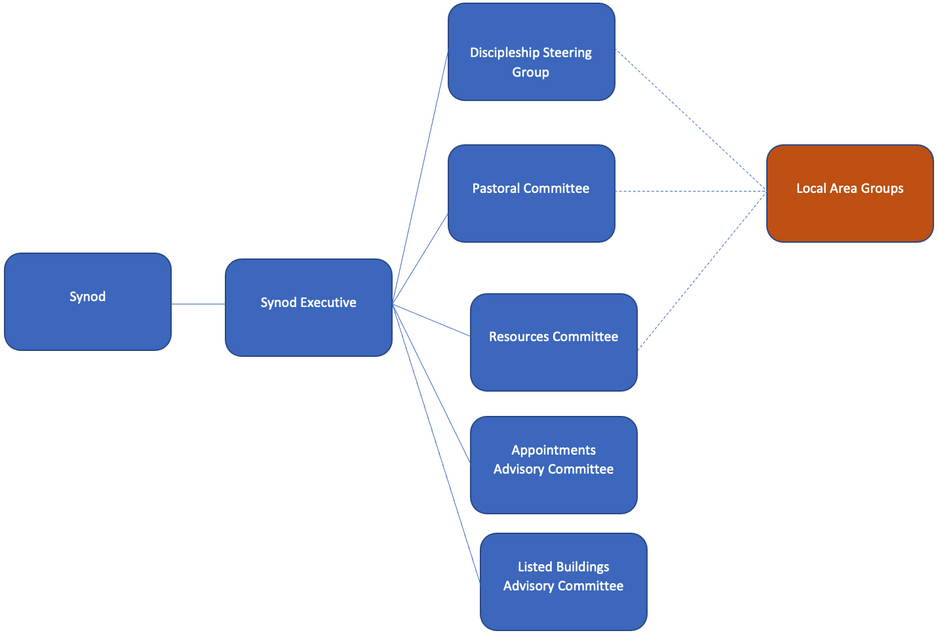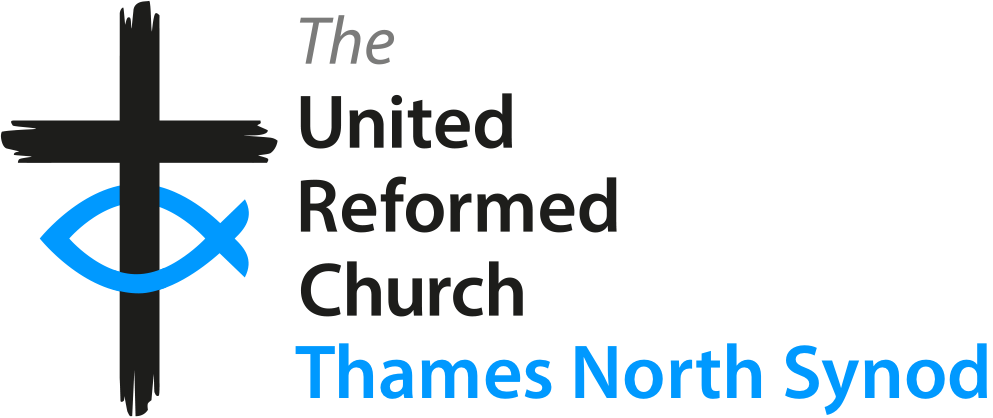About
-
The Synod supports the mission and ministry of our local churches, working together to do more than we could on our own.
-
Meet the dedicated Synod officers and staff who support the mission and ministry of our local churches.
-
A directory of the local United Reformed Churches that make up the Thames North Synod.
-
Learn about the URC's conciliar structure and the role of our Synod committees.
-
Thames North Synod gathers for full Synod meetings 2-3 times a year.
-
Discover the work of our Discipleship Steering Group and the Church & Society Network.
-
Our Synod has a commitment to whole-life discipleship, led by our Discipleship Steering Group (DSG)
-
The Church & Society Network explores a wide range of social issues and their intersection with our faith.
-
-
Information about the URC Thames North Trust, which holds our church properties.
-
Current job vacancies within the Thames North Synod and our partner organisations.
-
The United Reformed Church is made up of approximately 1,500 local churches across England, Scotland, and Wales.
-
Our Structure & Governance
Learn about the URC's conciliar structure and the role of our Synod committees.
A Conciliar Church
The United Reformed Church has a conciliar structure, which means that authority is exercised by Councils of the Church. These councils operate with the principle of subsidiarity, meaning that decisions are best made by the council closest to the situation. The three councils are the Church Meeting, the Synod, and the General Assembly.
The Church Meeting
Each local church is constituted by its Church Meeting. The Church Meeting has significant freedom to make decisions concerning its theological emphasis, leadership, membership, worship patterns, and mission priorities. It is responsible for ordaining and electing its own elders and for calling a Minister.
The Synod
Thames North Synod is made up of 106 local churches. Representatives from these churches gather 2-3 times a year to make decisions on issues best dealt with collaboratively, such as training, property issues, and shared mission. Much of the Synod's work is undertaken by the committees listed below. The Synod Trust holds the legal ownership of church properties on behalf of the local churches.
The General Assembly
The General Assembly meets annually and deals with matters affecting the entire United Reformed Church denomination across Great Britain. It determines denomination-wide policy on areas such as the training and accreditation of ministers, ecumenical relationships, and national initiatives like URC Youth.
Our Committee Structure & Contacts
The work of the Synod is overseen by a structure of committees, each responsible for specific areas of our shared life.

Synod Executive
Acts as the trustees of the Synod, develops the budget and strategy, manages staff, and encourages the performance of other committees.
Convenor: Revd George Watt; Synod Clerk: Ms Nneoma Chima
Discipleship Steering Group
Focuses on mission and growth, champions work with all age groups, and supports ecumenical and inter-faith relationships.
Convenor: Revd Brian Buschkill; Secretary: Ms Nneoma Chima
Resources Committee
Oversees the Synod’s finance and property, manages the URC’s Ministry and Mission fund, and makes grants and loans to local churches.
Convenor: Mr Peter Knowles; Minute Taker: Mrs Jean Wyber
Pastoral Committee
Supports the deployment of lay and ordained leaders, supports candidates for ministry, provides pastoral care for churches in crisis, and oversees LEP constitutions.
Acting Convenor: Revd Sue McCoan; Secretary: Mrs Colleen Fraser
Appointments Advisory Committee
Recruits for vacancies on Synod committees and makes recommendations to Synod for appointments.
Convenor: Revd George Watt; Secretary: Colleen Fraser
Listed Buildings Advisory Committee
Advises on any repair or alteration works to Listed Buildings within the Synod.
Convenor: David Skipp; Minute Taker: Mrs Jean Wyber
